
The Vibrant Heart of Fukuoka: Tenjin
Tenjin is the bustling commercial and entertainment hub of Fukuoka, renowned for its dynamic blend of modernity and tradition. This vibrant neighborhood offers an array of experiences, from high-end shopping to historic temples, making it an essential stop for any tourist exploring Fukuoka. Begin your journey at the Tenjin Underground Shopping Mall, a labyrinth of over 150 shops and eateries. This subterranean wonderland is perfect for picking up the latest Japanese fashion or savoring local delicacies. Above ground, you'll find a mix of department stores, boutiques, and quirky specialty shops that cater to every taste. For a cultural touch, visit the nearby Kego Shrine, a serene sanctuary amidst the urban hustle. The shrine's tranquil atmosphere provides a stark contrast to the lively streets, offering a moment of peace and reflection. As evening falls, Tenjin transforms into a nightlife paradise. The area is dotted with izakayas, bars, and nightclubs, ensuring that the fun continues well into the night. Don't miss the yatai food stalls, where you can enjoy authentic Japanese street food under the stars. Tenjin's central location makes it an ideal base for exploring the rest of Fukuoka. With excellent transport links, you can easily venture out to other attractions in the city or even embark on day trips to nearby destinations.
Local tips in Tenjin
- Visit early in the day to avoid crowds, especially in the Underground Shopping Mall.
- Carry cash, as some smaller shops and yatai stalls may not accept credit cards.
- Use the efficient public transport system to easily navigate between Tenjin and other parts of Fukuoka.
- Try local specialties like Hakata ramen at the yatai food stalls for an authentic dining experience.
The Vibrant Heart of Fukuoka: Tenjin
Tenjin is the bustling commercial and entertainment hub of Fukuoka, renowned for its dynamic blend of modernity and tradition. This vibrant neighborhood offers an array of experiences, from high-end shopping to historic temples, making it an essential stop for any tourist exploring Fukuoka. Begin your journey at the Tenjin Underground Shopping Mall, a labyrinth of over 150 shops and eateries. This subterranean wonderland is perfect for picking up the latest Japanese fashion or savoring local delicacies. Above ground, you'll find a mix of department stores, boutiques, and quirky specialty shops that cater to every taste. For a cultural touch, visit the nearby Kego Shrine, a serene sanctuary amidst the urban hustle. The shrine's tranquil atmosphere provides a stark contrast to the lively streets, offering a moment of peace and reflection. As evening falls, Tenjin transforms into a nightlife paradise. The area is dotted with izakayas, bars, and nightclubs, ensuring that the fun continues well into the night. Don't miss the yatai food stalls, where you can enjoy authentic Japanese street food under the stars. Tenjin's central location makes it an ideal base for exploring the rest of Fukuoka. With excellent transport links, you can easily venture out to other attractions in the city or even embark on day trips to nearby destinations.
Iconic landmarks you can’t miss
Fukuoka Tower
Experience breathtaking panoramic views of Fukuoka City and Hakata Bay from Japan's tallest seaside tower, adorned with dazzling illuminations.
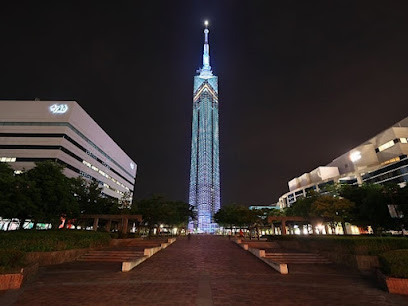
Ohori Park
Escape to Ohori Park in Fukuoka: a serene urban oasis with a scenic pond, tranquil islands, and beautiful gardens, perfect for a relaxing day.
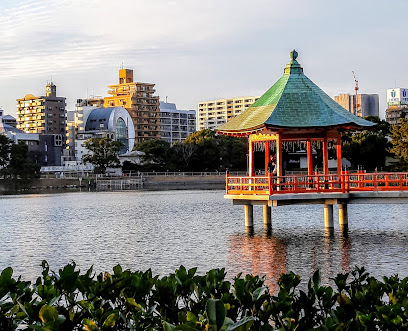
Acros Fukuoka
Experience the green oasis in the city: ACROS Fukuoka, where architecture meets nature in perfect harmony.
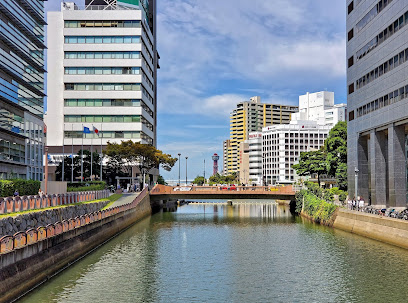
Kego Park
Escape the city buzz in Fukuoka's Kego Park: a green haven with gardens, events, and a historic shrine in Tenjin.
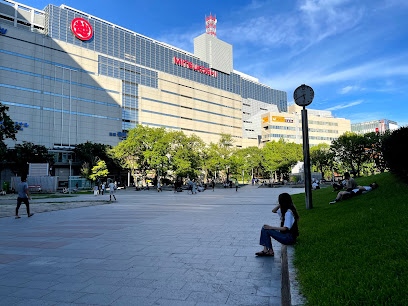
Kego Shrine
Experience the serene beauty and spiritual heritage of Kego Shrine, a tranquil oasis in the heart of Fukuoka, Japan.
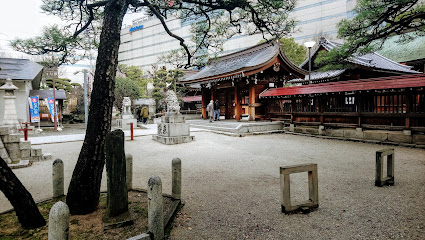
Suikyo Tenmangu Shrine
Explore the beauty and tranquility of Suikyo Tenmangu Shrine, a cultural gem in Fukuoka dedicated to the deity of learning.
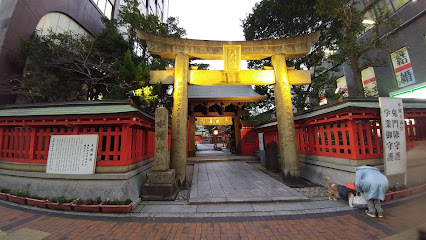
Tenjin Central Park
Escape the city bustle in Fukuoka's Tenjin Central Park: a green oasis with gardens, history, and seasonal events.
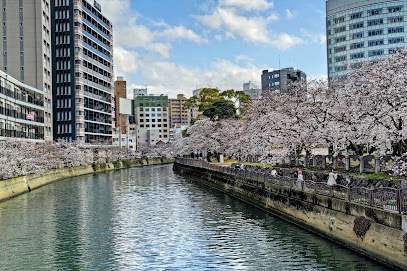
Fukuoka Red Brick Culture Museum
Step back in time at Fukuoka's Red Brick Culture Museum: a Meiji-era architectural gem blending history and modern culture in Tenjin.
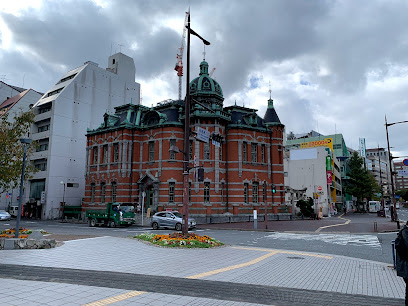
Fukuoka City Information Centre
Your first stop in Fukuoka: Expert travel advice, maps, and multilingual support in the heart of Tenjin!
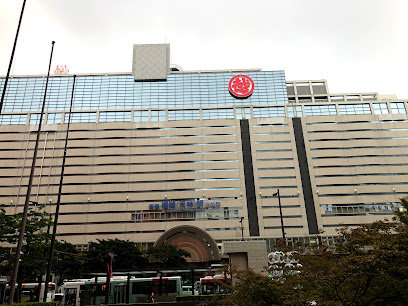
Statue of Otojiro Kawakami
Honoring a theatrical innovator: The Statue of Otojiro Kawakami in Fukuoka's vibrant Kawabata Shopping Arcade.
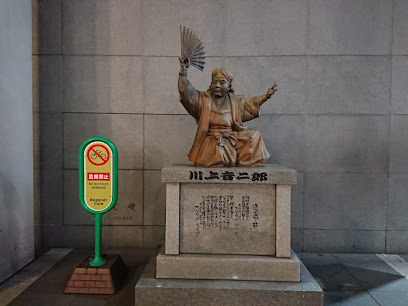
博多名物うまかもん通り
Discover Fukuoka's hidden culinary gem: Hakata Meibutsu Umakammon Street, a narrow lane packed with local flavors and nostalgic charm.
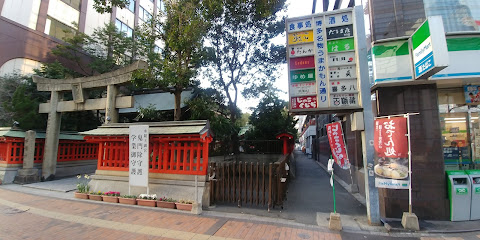
Unmissable attractions to see
Kego Park
Discover Kego Park, a tranquil urban sanctuary in Fukuoka, where lush gardens and scenic pathways await your exploration and relaxation.
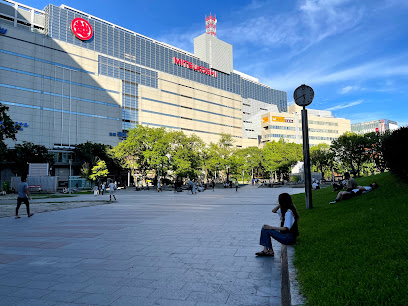
Tenjin Central Park
Discover tranquility and culture at Tenjin Central Park, an urban oasis in Fukuoka, Japan, perfect for relaxation and local events.
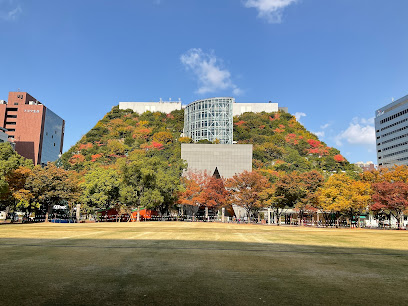
Kego Shrine
Explore Kego Shrine, a peaceful Shinto sanctuary in Fukuoka, blending rich tradition with serene natural beauty for an unforgettable visit.
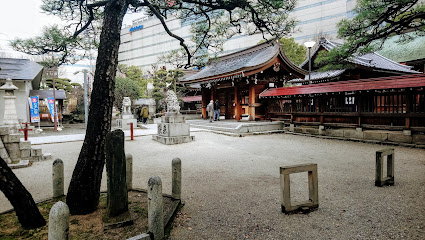
Rakusuien
Experience tranquility and beauty at Rakusuien, a serene garden oasis in Fukuoka, Japan, perfect for relaxation and cultural exploration.
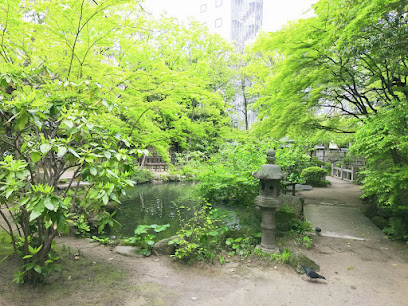
Hakatamachiya Furusatokan
Explore the cultural heart of Hakata at Hakatamachiya Furusatokan, a local history museum showcasing authentic Japanese heritage and craftsmanship.
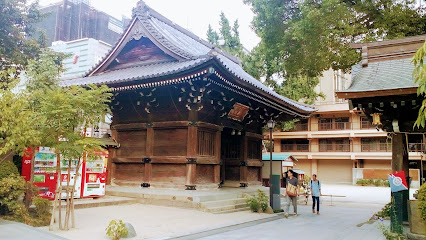
Fukuoka Red Brick Culture Museum
Explore the Fukuoka Red Brick Culture Museum, where art, history, and local culture come together in a stunning architectural setting.
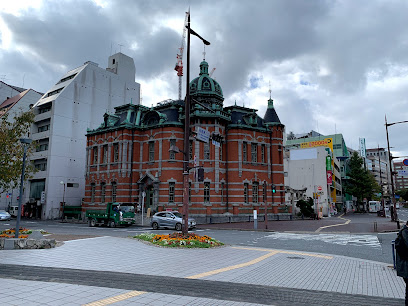
Suzaki Park
Experience the tranquility of Suzaki Park in Fukuoka, where lush landscapes meet cultural treasures, perfect for relaxation and exploration.
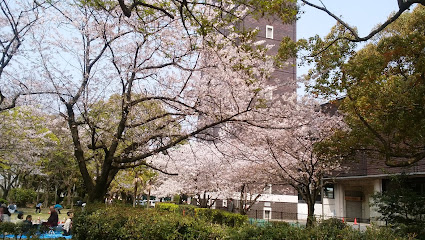
かっぱの泉
Explore the enchanting かっぱの湧 in Fukuoka, a serene tourist attraction blending natural beauty with rich cultural folklore.
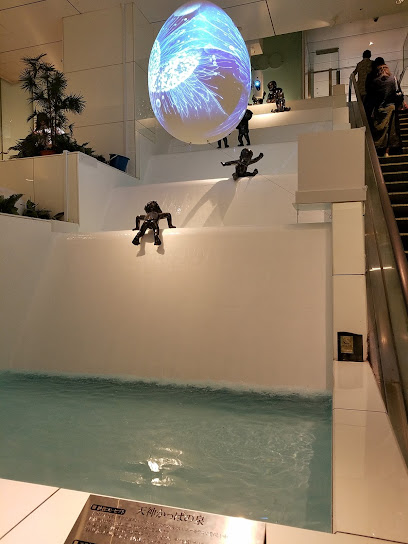
Essential places to dine
Hyotan Sushi
Discover authentic sushi at Hyotan Sushi in Fukuoka—where tradition meets taste in every bite.
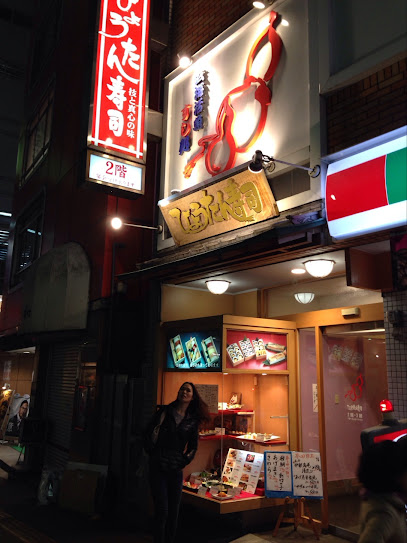
Kiwamiya Fukuoka Parco Store
Indulge in premium quality steaks at Kiwamiya Fukuoka Parco Store, where taste meets tradition in the heart of Japan's vibrant dining scene.
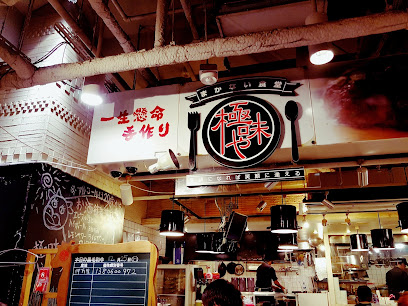
Shin-Miura Tenjin
Experience authentic Japanese cuisine at Shin-Miura Tenjin in Fukuoka—savor exquisite chicken dishes and traditional hot pots in a welcoming atmosphere.
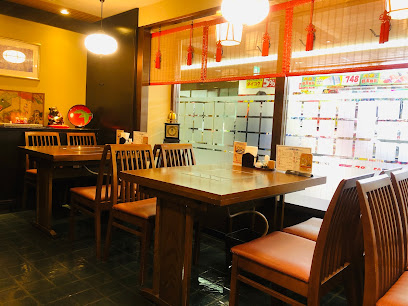
UmenohanaTenjin
Experience exquisite kaiseki dining at UmenohanaTenjin in Fukuoka - where tradition meets taste in every delightful bite.
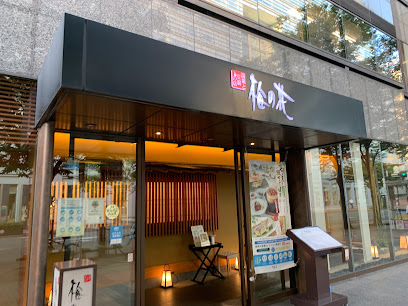
Tanca
Discover Tanca in Fukuoka: where traditional izakaya meets modern culinary delights featuring exquisite tongue dishes.
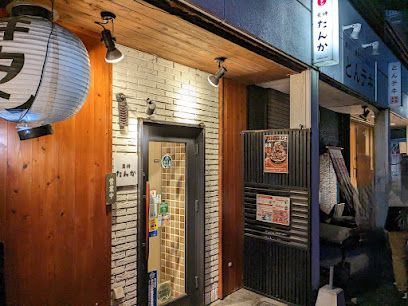
Grand Hours
Discover the perfect blend of traditional and contemporary Japanese cuisine at Grand Hours in Fukuoka - your go-to spot for dining and shopping.
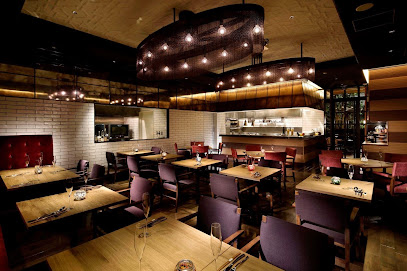
三匹の黒豚
Discover the authentic taste of Japan at 三匹の黒豚, where Shabu Shabu meets Tonkatsu in an unforgettable dining experience.
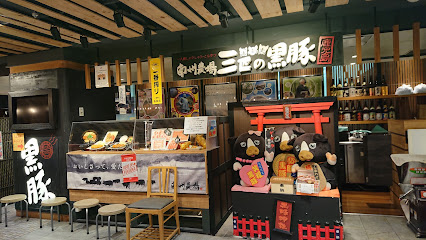
Genkai
Experience authentic tempura at Genkai, a culinary treasure in Fukuoka known for its exquisite flavors and welcoming atmosphere.
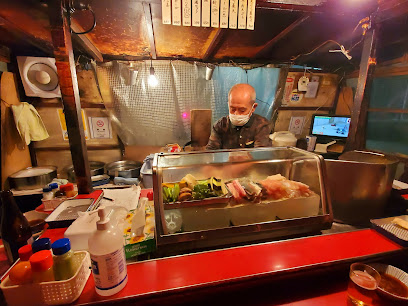
Tenjin INACHIKA
Experience the vibrant flavors of Japan at Tenjin INACHIKA – Fukuoka's premier underground dining destination.
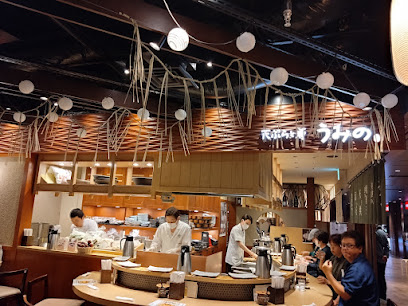
たんやHAKATA 福岡パルコ店
Discover authentic tongue cuisine at たんやHAKATA 福岡パルコ店, where traditional flavors meet modern dining in Fukuoka.
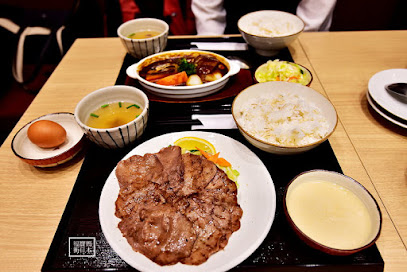
Markets, malls and hidden boutiques
Fukuoka PARCO
Explore Fukuoka PARCO, a vibrant shopping mall in Tenjin, where fashion, dining, and culture blend seamlessly for an unforgettable experience.
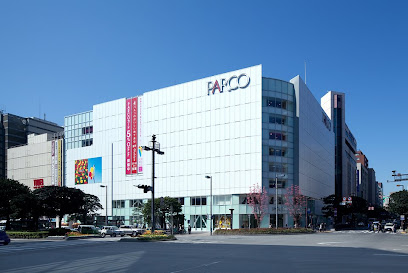
Iwataya-honten
Discover luxury shopping and gourmet delights at Iwataya-honten in Fukuoka, where elegance meets tradition in a premier department store experience.
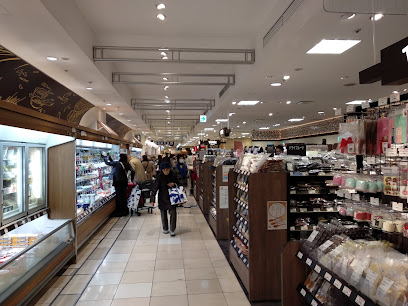
Tenjin Underground Mall
Uncover the charm of Fukuoka's Tenjin Underground Mall, a shopper's paradise offering unique finds, delicious dining, and cultural experiences all in one place.
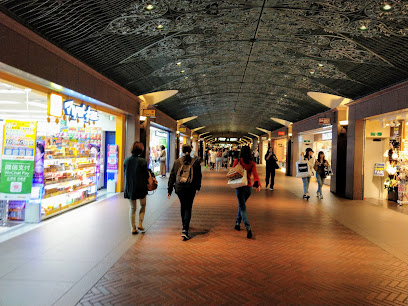
Tenjin LOFT
Discover a unique shopping experience at Tenjin LOFT in Fukuoka, featuring cosmetics, home goods, and much more in a vibrant atmosphere.
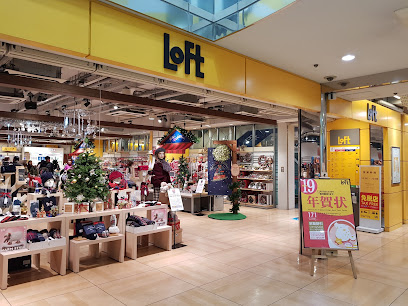
Shintencho shopping district
Explore the Shintencho Shopping District: A vibrant blend of shopping, dining, and local culture in the heart of Fukuoka, Japan.
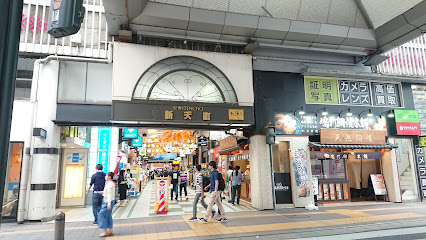
Mina Tenjin
Discover Mina Tenjin, Fukuoka's vibrant shopping mall offering fashion, dining, and entertainment in the heart of the city.
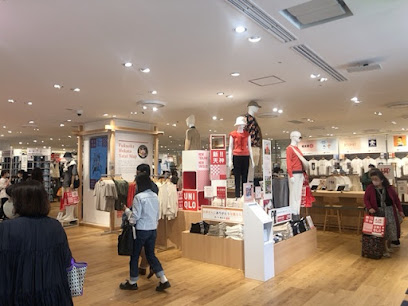
Flying Tiger Copenhagen
Explore the vibrant and whimsical world of Flying Tiger Copenhagen, Fukuoka's unique gift shop offering fun and affordable treasures for all ages.
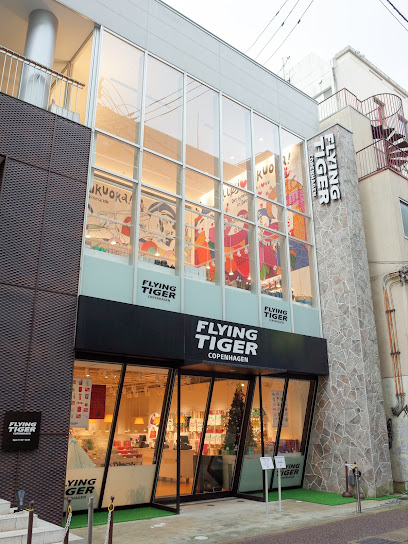
THE SHOPS DAIMYO
Discover a vibrant blend of shopping, dining, and culture at The Shops Daimyo, Fukuoka's premier shopping destination.
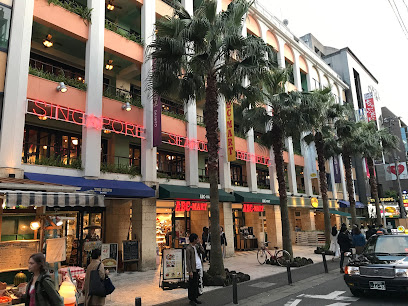
Sanrio Vivitix
Explore the whimsical world of Sanrio at Sanrio Vivitix, Fukuoka's premier gift and toy store, packed with delightful characters and exclusive merchandise.
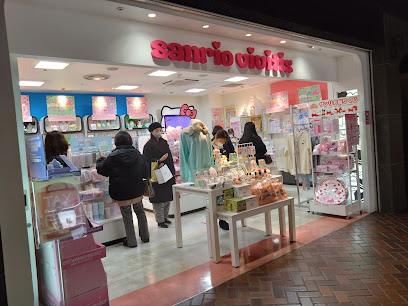
THE 天神
Explore THE 天神, a vibrant gift shop in Fukuoka's Tenjin district, offering unique souvenirs and local craftsmanship for every traveler.
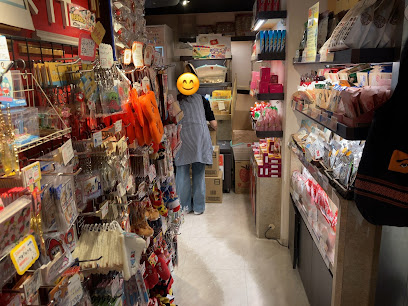
Essential bars & hidden hideouts
Yatai Bar Ebi-chan
Yatai Bar Ebi-chan: A lively bar in Fukuoka offering local drinks and flavors in a vibrant atmosphere perfect for tourists.
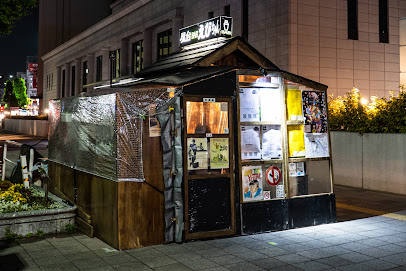
British Pub MORRIS’ RED FOX ブリティッシュ パブ モーリス レッドフォックス
Experience authentic British pub culture in Fukuoka, with delicious fish and chips and a vibrant beer garden atmosphere.
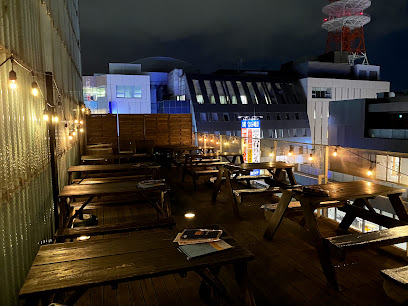
Barr Nowhere
Experience the vibrant rock music scene at Barr Nowhere, a cozy bar in Fukuoka's Daimyo district, perfect for music lovers and adventurers alike.
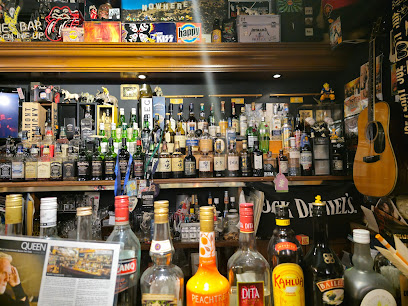
Bar Fuji
Experience the vibrant nightlife of Fukuoka at Bar Fuji, where expertly crafted cocktails and a cozy atmosphere await every visitor.
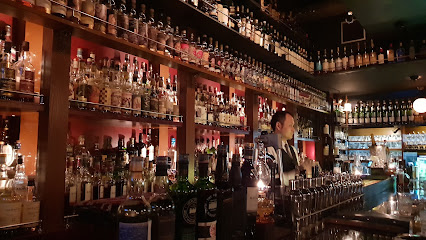
Gentle
Discover the essence of Fukuoka's nightlife at Gentle Bar, where exceptional cocktails meet a warm and inviting atmosphere in the heart of Tenjin.
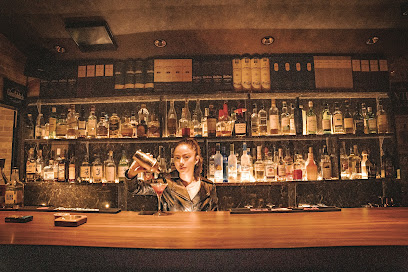
M8
Experience the vibrant nightlife at M8, a must-visit bar in Fukuoka's Tenjin district, perfect for socializing and enjoying great drinks.
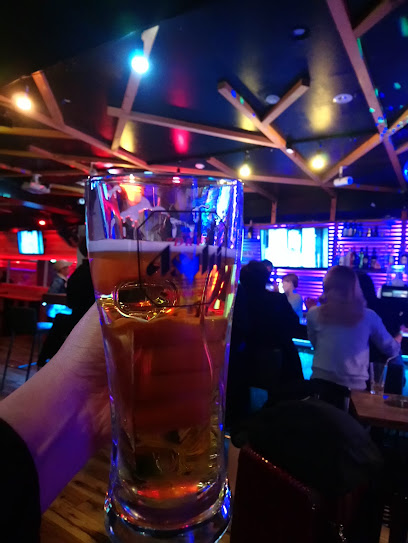
200yen bar moon walk 天神西通り店
Discover the lively izakaya scene at 200yen Bar Moon Walk, where drinks and atmosphere flow at an unbeatable price.
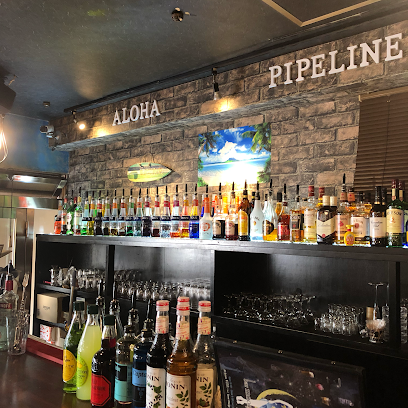
THE VAR
Experience the vibrant nightlife of Fukuoka at The Var, where exceptional drinks and a lively atmosphere await every visitor.
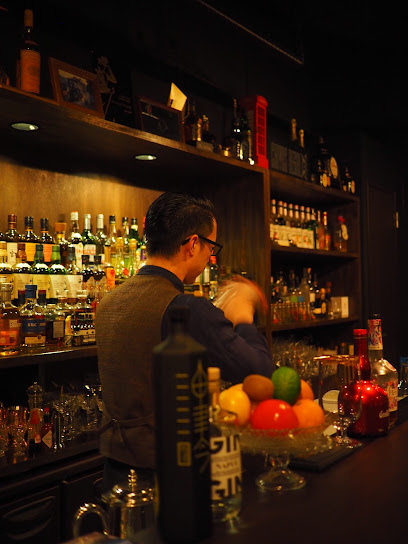
The Dark Room
Immerse yourself in Fukuoka's nightlife at The Dark Room, a vibrant bar in Tenjin known for its lively atmosphere and friendly service.

BAR KING BEE
Discover the lively ambiance and affordable drinks at Bar King Bee, Fukuoka's hidden nightlife treasure in Tenjin.
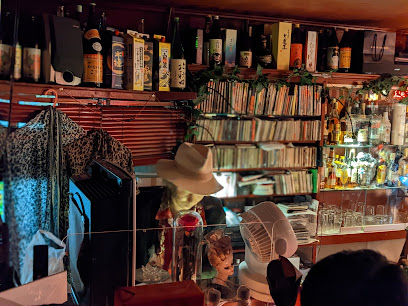
Local Phrases
-
- Helloこんにちは
[konnichiwa] - Goodbyeさようなら
[sayonara] - Yesはい
[hai] - Noいいえ
[iie] - Please/You're welcomeどうぞ
[douzo] - Thank youありがとう
[arigatou] - Excuse me/Sorryすみません
[sumimasen] - How are you?お元気ですか?
[ogenki desu ka?] - Fine. And you?元気です。あなたは?
[genki desu. anata wa?] - Do you speak English?英語を話せますか?
[eigo o hanasemasu ka?] - I don't understandわかりません
[wakarimasen]
- Helloこんにちは
-
- I'd like to see the menu, pleaseメニューを見せていただけますか?
[menyuu o miseteitadakemasu ka?] - I don't eat meat肉は食べません
[niku wa tabemasen] - Cheers!乾杯!
[kanpai!] - I would like to pay, pleaseお会計をお願いします
[okaikei o onegaishimasu]
- I'd like to see the menu, pleaseメニューを見せていただけますか?
-
- Help!助けて!
[tasukete!] - Go away!去ってください!
[satte kudasai!] - Call the Police!警察を呼んで!
[keisatsu o yonde!] - Call a doctor!医者を呼んで!
[isha o yonde!] - I'm lost道に迷っています
[michi ni mayotteimasu] - I'm ill病気です
[byouki desu]
- Help!助けて!
-
- I'd like to buy......を買いたいです
[... o kaitai desu] - I'm just looking見てるだけです
[miteru dake desu] - How much is it?いくらですか?
[ikura desu ka?] - That's too expensiveそれは高すぎます
[sore wa takasugimasu] - Can you lower the price?値段を下げてもらえますか?
[nedan o sagetemoraemasu ka?]
- I'd like to buy......を買いたいです
-
- What time is it?今何時ですか?
[ima nanji desu ka?] - It's one o'clock一時です
[ichiji desu] - Half past (10)十時半
[juuji han] - Morning朝
[asa] - Afternoon午後
[gogo] - Evening夕方
[yugata] - Yesterday昨日
[kinou] - Today今日
[kyou] - Tomorrow明日
[ashita] - 1一
[ichi] - 2二
[ni] - 3三
[san] - 4四
[shi] - 5五
[go] - 6六
[roku] - 7七
[nana] - 8八
[hachi] - 9九
[kyuu] - 10十
[juu]
- What time is it?今何時ですか?
-
- Where's a/the...?...はどこですか?
[... wa doko desu ka?] - What's the address?住所は何ですか?
[juusho wa nan desu ka?] - Can you show me (on the map)?地図で見せてもらえますか?
[chizu de misetemoraemasu ka?] - When's the next (bus)?次の(バス)はいつですか?
[tsugi no (basu) wa itsu desu ka?] - A ticket (to ....)(...)へのチケットをください
[(...) e no chiketto o kudasai]
- Where's a/the...?...はどこですか?
History of Tenjin
-
Tenjin, originally named after the Tenjin Shrine, has been a central part of Fukuoka's history since the early 8th century. The shrine is dedicated to Sugawara no Michizane, a scholar and politician deified as the god of learning. This historical figure's connection to Tenjin has fostered a culture of education and scholarship, influencing the development of the area as a hub for commerce and culture.
-
During the Edo period (1603-1868), Tenjin began to flourish as a commercial center. Fukuoka Castle, built in the early 17th century, helped establish the city as a key player in regional trade. Tenjin's proximity to the castle contributed to its rise, with merchants and artisans setting up shops and businesses, leading to a vibrant urban culture.
-
The Meiji Restoration in 1868 brought about significant changes, including the modernization of infrastructure in Tenjin. The area saw the introduction of Western-style buildings and transportation systems, which facilitated trade and tourism. The establishment of Tenjin Station in 1889 further integrated the area into the national railway network, boosting its status as a commercial hub.
-
The devastation of World War II left a profound impact on Tenjin, as much of Fukuoka was heavily bombed. However, post-war reconstruction efforts in the late 1940s and 1950s revitalized the neighbourhood. The Tenjin area became a center for commerce and culture, with many businesses reopening and new ones emerging, cementing its role as Fukuoka's urban heart.
-
Today, Tenjin is known for its bustling shopping streets, entertainment districts, and cultural landmarks, such as the Tenjin Core and the IMS building. The annual Tenjin Matsuri, one of Fukuoka's major festivals, showcases the area's rich cultural heritage. The blend of modernity and tradition makes Tenjin a vibrant and essential part of Fukuoka's identity.
Tenjin Essentials
-
Tenjin is easily accessible via public transportation. From Fukuoka Airport, take the Kuko Line (Airport Line) to Tenjin Station, which takes about 15 minutes. If you're traveling from Hakata Station, the Nishitetsu Tenjin Omuta Line or the Subway Kuko Line will take you directly to Tenjin in approximately 5-10 minutes. Buses also connect various neighborhoods to Tenjin, making it a central hub for transit.
-
Tenjin is a pedestrian-friendly area, with many attractions within walking distance. The subway system is efficient, with Tenjin Station serving as a key interchange for the Kuko Line and the Nanakuma Line. Buses also operate throughout the area, providing access to various points of interest. For a unique experience, consider renting a bicycle from one of the local rental shops to explore the neighborhood at your own pace.
-
Tenjin is generally considered a safe area for tourists. However, as with any urban environment, it is advisable to remain alert, especially in crowded areas. While the overall crime rate is low, petty crimes such as pickpocketing can occur in busy shopping districts. Avoid poorly lit areas at night and be cautious around Tenjin Chuo Park, where some incidents have been reported.
-
In case of an emergency, dial 110 for police assistance or 119 for medical emergencies. Familiarize yourself with the location of the nearest hospital, such as Fukuoka City Hospital, and keep a list of emergency contacts handy. Many pharmacies are available in Tenjin for minor ailments, and staff in larger establishments may speak basic English.
-
Fashion: Do wear comfortable shoes for walking, and consider dressing modestly when visiting religious sites. Religion: Do show respect when entering shrines and temples, and follow any posted rules. Public Transport: Do give up your seat to the elderly and avoid talking loudly. Don't eat or drink on public transport. Greetings: Do bow slightly when greeting someone, and a handshake is appropriate in more formal settings. Eating & Drinking: Do try local delicacies, especially in izakayas. Don't waste food; it's considered impolite.
-
To experience Tenjin like a local, visit the Tenjin Underground Shopping Mall, where you can discover unique shops and local cuisine. Engage with locals at the various festivals held throughout the year, particularly during the summer. Try to learn a few basic Japanese phrases, as this can enhance interactions. Additionally, explore the smaller alleyways for hidden gems, such as quaint cafes and artisanal shops, away from the main tourist spots.
Nearby Cities to Tenjin
-
Things To Do in Hiroshima
-
Things To Do in Busan
-
Things To Do in Ulsan
-
Things To Do in Gyeongju
-
Things To Do in Pohang
-
Things To Do in Daegu
-
Things To Do in Suncheon
-
Things To Do in Jeju City
-
Things To Do in Andong
-
Things To Do in Gwangju
-
Things To Do in Jeonju
-
Things To Do in Mokpo
-
Things To Do in Daejeon
-
Things To Do in Osaka
-
Things To Do in Nara











